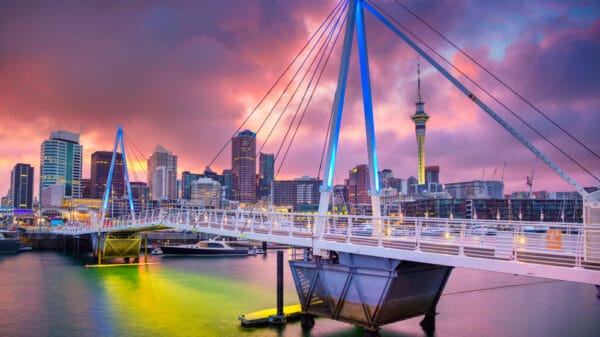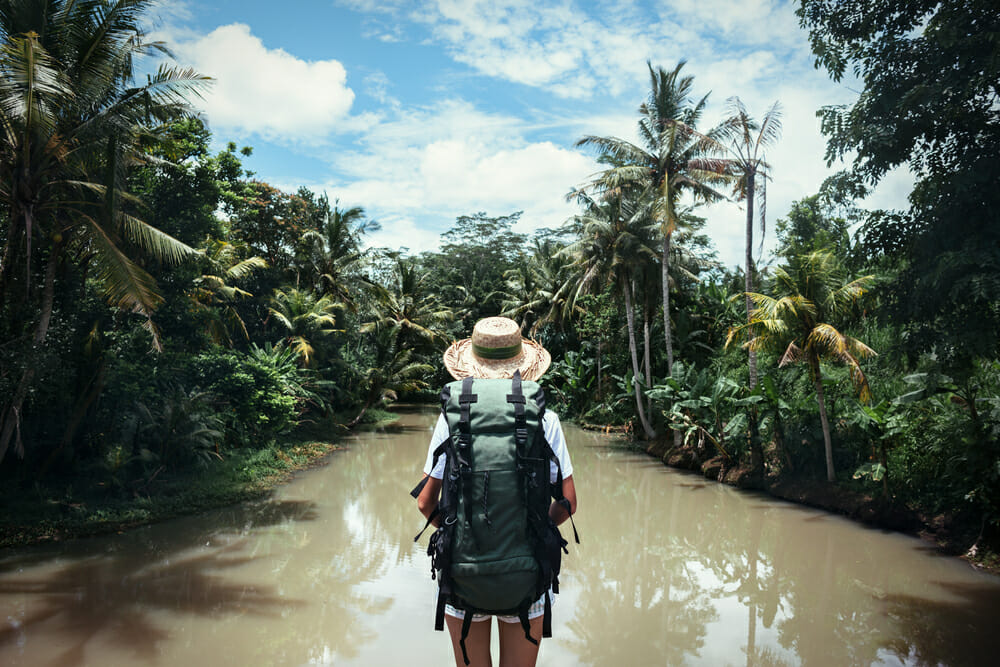Seven-continent explorer David Axelrod is a professional ‘globonaut’ whose lifelong travel obsession has taken him to more than fifty countries. A sought-after travel consultant, speaker, and leisure champion, he helps other travelers design ideal trips via his website davidaxelrod.co. Regularly featured by travel and hospitality brands and publications such as AFAR, Fodor’s, Exclusive Resorts, Matador Network, and Relais & Châteaux, the Seattle-based Axelrod published his debut essay collection in 2014. And now he’s back with Get Away!, his step-by-step guide for designing a transformative travel experience, perfectly tailored to individual preference.
Axelrod contends that planning a trip doesn’t have to be hard, and taking a trip doesn’t have to be stressful. Regardless of work commitments, family obligations, or finances, travel dreams can become realities. In Get Away! Axelrod equips the reader with the essential tools, checklists, and mindset for choosing a destination with purpose – from crafting an airtight itinerary, to booking a flight with finesse, to kicking pre-trip anxiety. We caught the globonaut between travels to ask him some key questions:
What are the top excuses people make that keep them from going on the vacation of their dreams?
The most common excuses are related to money, work, and health. Each excuse is valid, but flimsy and based on exaggerated fears. For example, people are terrified of falling behind at their jobs. Actually, research shows that employees who take more time off perform better at work, have better attitudes, are more creative, and are even more likely to receive raises. Many travelers invoke money as an excuse, or claim they don’t have enough time, but I think these excuses are really just reflections of people’s skewed priorities. They don’t fully understand the magnitude of the reward they’re missing out on by not traveling. A fear-based mindset – not to mention Covid alarmism – keeps people stuck on their sofas. I recognize but reframe these excuses so they aren’t so limiting.
Why do you think people get so stressed about taking a vacation?
Stress comes from not being in control and being scared or uncertain about the future. Surprises and uncertainty will always be a part of traveling. That’s what makes it fun! The problem is that people don’t put in enough work on the planning end to control more elements of their trip. Travelers have a ton of control. Planning not just the bones of a trip but the internal transportation, excursions and activities, tours – as much as you can, really – takes away loads of stress, both in the build-up to a trip and while it’s happening. Control as much as you can, relinquish control of the rest, and you’ll have no reason to be stressed.
How can travelers kick pre-trip anxiety?
Between the time when a trip is planned and taken, there’s still work to do: home care, pet care, self-care, packing… A departure date can feel like a terrifying deadline. But meeting any deadline is way less anxiety-inducing when you start early and break it into pieces. I recommend making checklists for each area of your life that needs attention. For example, loose ends that need to be tied up at work, appointments or meetings that must occur before you leave, gear lists, etc. Instead of feeling a sense of impending doom about your trip approaching, use it as motivation to create systems of organization in your life that might even help you after you get home.
What is “mindful travel”?
As one of my Amazon reviewers recently wrote, “it’s more than just not using plastic straws.” Mindful travel is a framework for deliberate and considered leisure. It’s about being aware and attentive during each phase of a trip – before, during, and after. Learning about the place, the people, and the culture. Being aware of your surroundings. Considering your purpose for traveling in the first place. And being an ambassador rather than just another tourist.
How can readers craft an itinerary that enriches rather than exhausts?
The order of the steps in your itinerary design process makes a huge difference. There’s no point in booking a camel ride if you don’t even have flights yet. When seemingly infinite attractions start to feel overwhelming, the key is to be real about what does and doesn’t work for you. The top attraction in the guidebook might not be worth the wait for you. I also recommend planning time to roam or get lost (which is a lot more fun when you do it on purpose). Avoid tour buses that make you feel like you’re being herded like cattle. Leave yourself comfortable cushions of time to avoid “chasing” your itinerary. Make it wait for you.
Please share a successful travel story – something that might uplift anxious travelers during this time of Covid
I went to Uzbekistan in the middle of the pandemic. It was safe (and legal). Yes, it required some extra paperwork and planning, but I followed the rules, had my PCR test ready, expedited my visa order, and made it happen. I had the entire country to myself. It was one of my most successful trips of all time. It only worked because I was determined and seized the moment.
Image Source: Alex from the Rock / Shutterstock




































